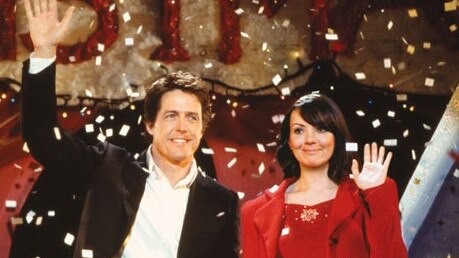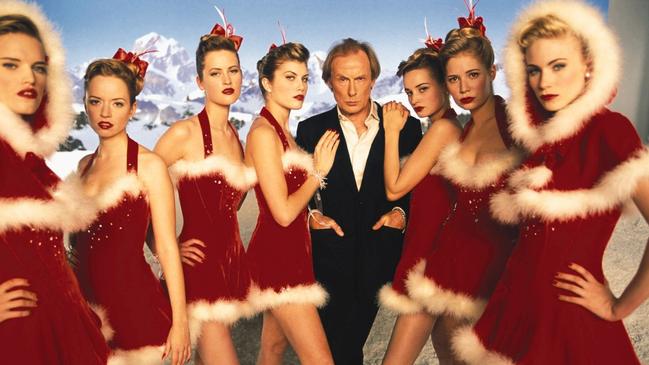Classic 2000s Christmas film Love Actually dubbed ‘Sexism, Actually’, Writes | Nicolle Flint
It’s its 20th anniversary and it’s peaking high on Netflix but this popular staple of Christmas viewing is seriously out of date, writes Nicolle Flint.

Opinion
Don't miss out on the headlines from Opinion. Followed categories will be added to My News.
Christmas is not just the season for an overload of jolliness, food and drink, but also non-stop Christmas-themed movies.
According to Google’s ‘sources across the web’ the top three tinsel-flecked films the world is watching are ‘Home Alone’, ‘Elf’ and ‘Love Actually’.
Channeling my inner ‘Grinch who Stole Christmas’ (ranked number seven by ‘sources across the web’) I am here to explain why ‘Love Actually’ should be rebranded ‘Sexism, Actually’, on what is the 20th anniversary of this crime against Christmas film festivities.
Yes, the movie described by the hugely-reliable source Wikipedia as “popular among audiences” and “an arguable modern-day Christmas classic” should be given the flick for how it portrays almost every single female character and, actually, the men, too.
Don’t believe me? You should.
The very first thing Hugh Grant’s central character David does as the new British Prime Minister is ogle Natalie, member of his household staff and the tea lady. Natalie then gets touched up by the American President, and later touched up by the Prime Minister when he turns up at her home unannounced then kisses her on stage in front of a room full of people.

Because that’s what Prime Ministers do, right? Hook up with their tea ladies? And proposition them in public?
Really, Love Actually writers? There wasn’t an equally successful colleague you could have found for him? A feisty foreign diplomat? No, they chose the tea lady and subjected her to a range of indignities inflicted by men in positions of power, and forced the PM’s high- achieving and highly-capable female Chief of Staff Annie to make some seriously nasty comments about Natalie the tea lady’s weight.
Elsewhere, Colin Firth’s character, the writer Jamie, returns home to find his girlfriend cheating on him with his brother. He flees from England to his house in France – as you do – and falls for his Portuguese housekeeper Aurelia.
Despite neither of them speaking each other’s language, Jamie propositions her in a restaurant full of people where Aurelia is waitressing.
Couldn’t the writers instead have turned her into the successful owner of the restaurant where he sits to write and drown his sorrows each day? Would that have been so hard?
Then there’s design agency boss Harry (Alan Rickman), who falls for the classically-cliched advances of his ferociously-flirty, much younger personal assistant Mia, yet another woman in a junior role to a senior, successful man. Harry is married to Karen (Emma Thompson) a full-time mum, who is the saving grace of this anti-female film.
When Karen discovers Harry’s dalliance she allows herself a bit of a cry, pulls herself together for the sake of her children, then confronts her idiot husband and holds her own.
But the Love Actually writers didn’t stop there. Juliet, played by Keira Knightly, is literally stalked by her husband’s best friend Mark who is obsessed with her, but instead of the Love Actually writers letting her call the police or getting her to kick Mark somewhere it hurts when he turns up on her doorstep unannounced on Christmas Eve to declare his love for her, the writers have her run down the street and kiss him.
While her husband is home inside.
At this point one would assume it cannot get any worse but it can and it does. Creepy Colin can’t find a girlfriend in England, so flies to America, where lo-and-behold he walks into a bar and hooks up with not one, not two, not three, but four beautiful American women. All at once. Then ships them back to England to share with his mate Tony.
Oh, and desiccated rock star Billy appears in a Christmas music video with minimally-dressed much-younger women, then spends Christmas night getting drunk and watching porn with his manager.
Despite all this, and the fact the only equal, non-sexist relationships are bizarrely between an actor and actress who perform naked-sex scenes for a living, and Sarah and Karl who work together at Harry’s design agency, somehow this film is ranked the third most-popular Christmas movie around the world.
Given the raft of stereotypical characters and relationships, it is genuinely hard to believe this film was made in 2003.
Women deserve better – and men do too – than this dated sexist drivel. So spread the word to your family and friends; it’s not love, actually, but sexism, actually.
This film does not belong at number three in the Christmas movie charts, it deserves to be right down at the very bottom of the outdated-movie-themes bin.





